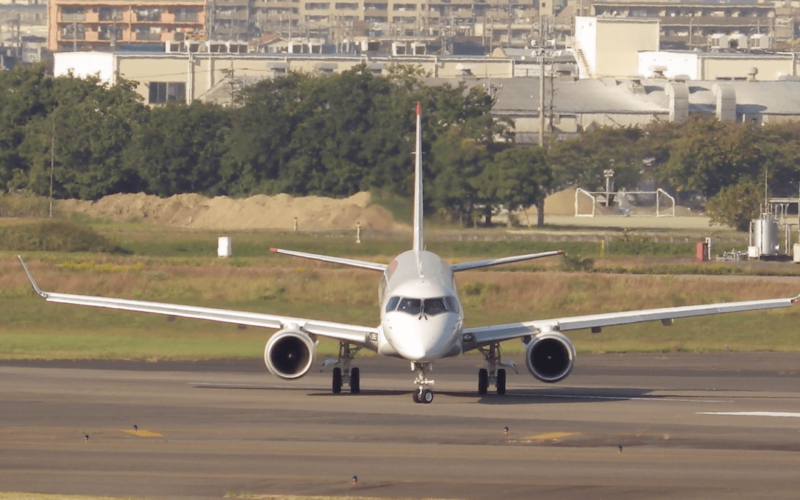In the latest development of the MRJ dispute, Mitsubishi Heavy is suing back Bombardier. The Japanese manufacturer is accusing its Canadian competitor of wanting to delay or even prevent the development and certification of its regional aircraft, the MRJ.
The company announced the news on January 29, 2019. The legal action follows another complaint filed at Seattle West District court by Bombardier in October 2018. At the time, the Canadian manufacturer was accusing the Japanese company of illegally acquiring some secret documents by hiring its former employees.
According to Mitsubishi, the lawsuit was a way for Bombardier to slow down, or even prevent the development and the certification of the MRJ, which the Japanese manufacturer qualifies as illegal practices. “We believe that in response to the threat posed by the MRJ, Bombardier has chosen to engage in a pattern of anticompetitive conduct instead of competing on the merits of its product,“ said Mitsubishi in a statement. According to the Japanese group, the complaint filed by Bombardier is not based on anything concrete but aims to slow down the MRJ’s arrival to the market.
Simon Letendre, spokesperson for Bombardier already declared that the manufacturer would “defend its rights, including holding MITAC, AeroTEC and other offenders accountable” in an email to Radio Canada. “The facts in this case clearly show an unlawful attempt by MITAC to obtain and use Bombardier’s trade secrets to accelerate the certification of its MRJ aircraft,” explained Letendre, adding “it is reprehensible and illegal.“
In its October lawsuit, Bombardier claims that more than 92 of its former employees working both in Canada and the United States were hired by MITAC, AeroTEC, two companies supplying and assisting Mitsubishi in the development of the MRJ. The workers are suspected to have given Mitsubishi Aircraft information about the certification process of two aviation authorities: the Federal Aviation Administration (FAA) and its Canadian equivalent, Transport Canada. Mitsubishi answered that only nine former Bombardier employees were hired.
The MRJ is marketed as an alternative to Embraer ERJ and Bombardier CRJ. Powered by two Pratt & Whitney PW1000G engines, it should have a capacity of 78 to 92 passengers, with a maximum range of 3,380km. The development and certification process for the MRJ have already been delayed for seven years. Its launch customer, All Nippon Airways, now expects the regional plane to be delivered by 2020. In October 2018, a week after Bombardier’s lawsuit was filed, Mitsubishi Heavy Industry had to inject $1.94 billion into its aircraft division as its liabilities exceeded assets.

